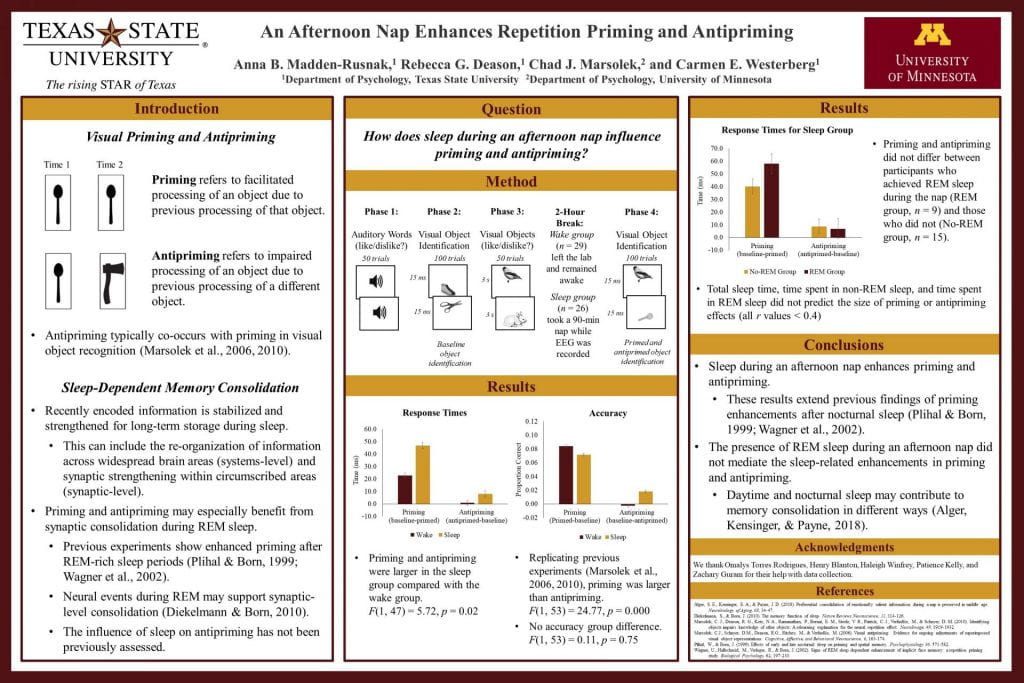An Afternoon Nap Enhances Priming and Antipriming
Principle Author
Anna Madden-Rusnak
Graduate
Co-Author(s)
Rebecca Deason, Chad Marsolek, and Carmen Westerberg
Abstract
Repetition priming occurs when object recognition is facilitated due to recent processing of that object. Because representations in visual cortex overlap, when one object is primed, processing deficits for similar but unprimed objects simultaneously occur, an effect known as antipriming. During sleep, some recent memories undergo consolidation, which can be manifested at synaptic and systems levels. Whereas declarative memories depend on systems consolidation during slow-wave sleep, priming and antipriming may be primarily influenced by synaptic consolidation during rapid-eye movement (REM) sleep, as REM during overnight sleep has been associated with enhanced priming. To determine how sleep during an afternoon nap influences priming and antipriming, participants identified common object images as quickly and accurately as possible to obtain baseline object recognition measures. Participants then viewed different object images and made liking judgements for those images. Next, during a 2-hour break, participants either took a 90-minute nap while electroencephalography was recorded (n=26) or remained awake (n=29). Afterwards, participants again identified object images as quickly and accurately as possible. Half were the same objects viewed just prior to the break (primed) and half were new (antiprimed). Priming (facilitation for primed versus baseline objects) and antipriming (decrement for antiprimed versus baseline objects) response times were larger for participants who slept compared with participants who remained awake, and this difference was not mediated by REM sleep. Sleep appears to enhance both priming and antipriming, and aspects of sleep that contribute to this enhancement during a nap may differ from those during overnight sleep.

Like – Dr. Ginsburg